CBD for Self-Harm
Estimated reading time: 15 minutes
- Introduction
- Exploring the Motivations behind Self-Harm
- Reasons NOT to Self-Harm
- Factors to Consider before Using CBD for self-harm
- How to Determine the Right CBD Dosage
- Different CBD Products for Self-Harm
- Identifying Warning Signs of Self-harm
- How CBD Can Provide Help
- Trying out different ways to deal with stress
- Best Practices for Using CBD for Self-Harm
- Benefits of CBD for Self-Harm
- Safety Precautions and Side Effects
- FAQs about Using CBD for Self-Harm
- Conclusion
Introduction
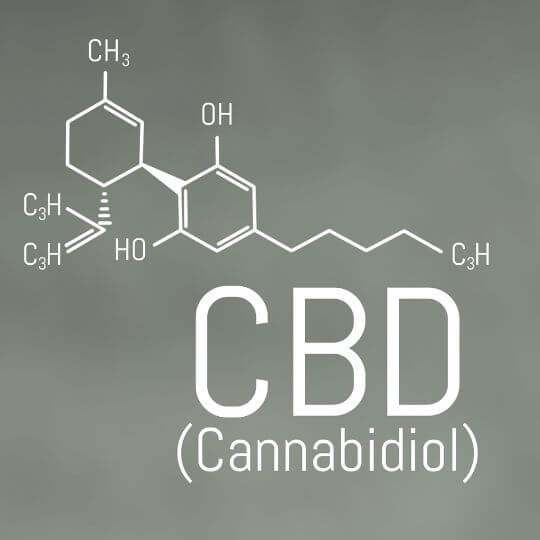
CBD for self-harm? What is Self-harm? Let us explore. Self-harm is a bad way for many people to deal with their problems. Some people hurt themselves as a way to get rid of their feelings when they are too much. People with depression disorders, anxiety disorders, and personality disorders, who feel their emotions more intensely, are more likely to have this tendency. However, by using CBD, emotional people might be able to calm down their feelings and find other ways to deal with their problems without hurting themselves.
CBD has the ability to help people who hurt themselves by reducing overactive parts of the brain, repairing parts of the brain linked to mental illness, and causing a calming effect that can be very helpful in times of stress. Self-harming habits do not have to be lasting if the person uses CBD to find new ways to deal with the problems that led to them in the first place.
Exploring the Motivations behind Self-Harm
Distraction
Do you resort to self-harm because of overwhelming emotions that leave you at a loss for handling them? Sometimes, people who experience intense feelings may turn to self-harm as a means of distraction, diverting their attention away from the triggering situations or emotions themselves.
Release of Tension
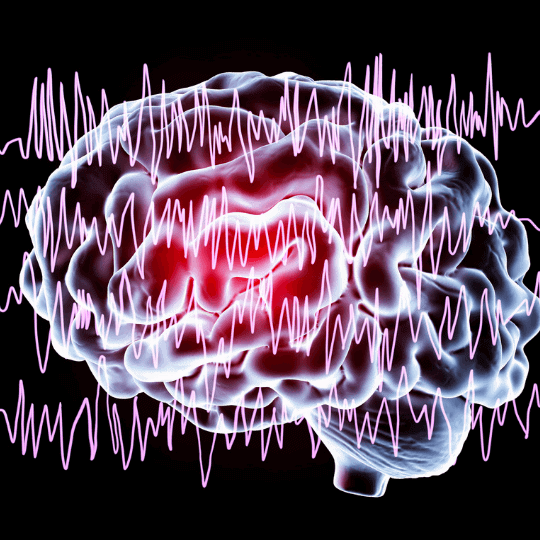
Do you find the need to self-harm when overwhelmed by anger or sadness? Some people resort to this unhealthy coping mechanism to alleviate tension, channelling their anger or distress through self-inflicted harm. Rather than resorting to throwing objects, hitting things, or shouting, they opt to harm themselves.
The Pursuit of Sensation
Perhaps you rarely experience emotions and seek any form of sensation to remind yourself that you are alive? In such cases, self-harm becomes a means to induce feeling and break free from a sense of emotional numbness.
Expression
It can be disheartening when others fail to grasp the depth of your pain and assume your life is flawless, while you suffer internally. Actions such as meticulously organizing your locker, causing tardiness, or staring off into space consumed by misery often go unnoticed. Some people resort to self-harm as a means of visually displaying their inner brokenness by manifesting it externally.
Self-Punishment
Do you shoulder the blame for every misfortune that befalls you? Is the weight of the world constantly on your shoulders? Perhaps you have friends or family members who contribute to this overwhelming sense of guilt, and self-harm becomes a means of self-imposed punishment. Low self-esteem may intensify the belief that everything is your fault, leading to self-harm as a form of self-inflicted retribution.
Chasing Euphoria
When injured, the body releases chemicals that alleviate pain, creating a rush of endorphins. This heightened state of euphoria can become addictive for those who constantly seek to escape their perpetual sense of self-disgust. Even if only temporary, self-harming feels like sole source of happiness. This pursuit of euphoria through self-inflicted harm poses significant dangers.
Reasons NOT to Self-Harm

Although self-harm may seem like a personal choice with no direct impact on others, numerous reasons advocate against engaging in this behaviour.
Scars
Young people may not think about how their childhood or teen scars can hurt their confidence as they get older. People do notice these wounds, and the self-consciousness that comes with it can be bothersome.
Feelings After Harm
When someone hurts themselves, they often feel bad about themselves and ashamed. This feeling of betrayal adds to the chaos that is already going on inside.
Chance of getting infections
Getting infections is more likely if you cut or burn yourself, especially if the tools you use aren't clean. Such actions can cause sepsis, a life-threatening disease that is much worse than any possible benefits.
Unforeseen Accidents
What begins as minor self-inflicted injuries can escalate over time. Deep wounds that are not immediately treated can lead to irreversible consequences. Although most people engaging in self-harm do not intend to end their lives, accidents can happen unintentionally.
Factors to Consider before Using CBD for self-harm
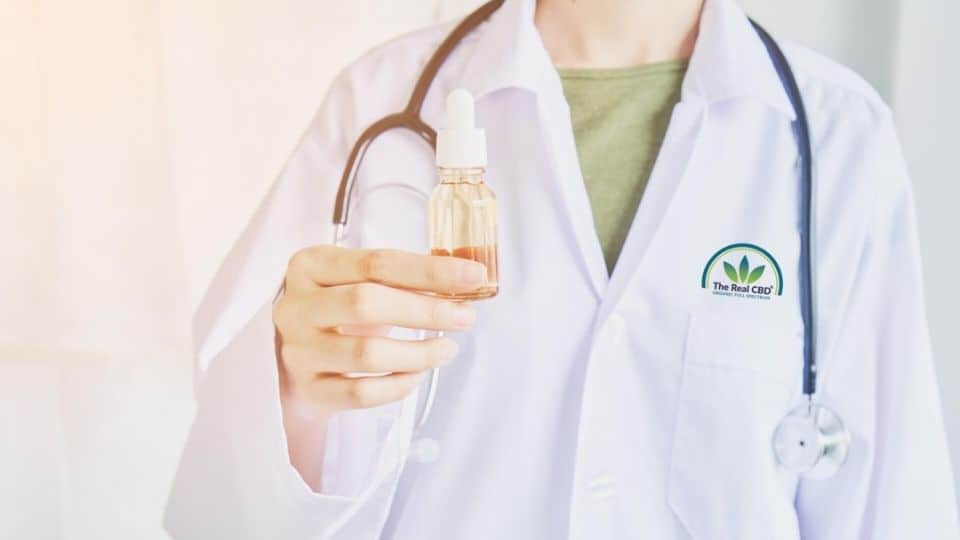
Before adding CBD to your plan for dealing with self-harm, it's important to think about the following:
• Talking with a doctor: Talk to a medical professional who knows about your mental health background if you want to use CBD to hurt yourself. They can give you personalised advice that takes into account any possible combinations with other medicines or underlying health problems.
• A Comprehensive Treatment Approach: Treat CBD as a tool that works with other treatments, not as an answer in and of itself. Use it as part of a full treatment plan that also include things like therapy, medicine, support groups, and other approaches.
• Quality and Origin: Choose high-quality CBD products made by reliable companies. Look for goods that are tested by a third party to make sure they are effective, pure, and free of contaminants..
How to Determine the Right CBD Dosage
Finding the optimal CBD dosage for self-harm management requires an individualized approach. It's recommended to start with a low dose and gradually increase until the desired effects are achieved. Factors such as body weight, metabolism, and the severity of symptoms can influence dosage. Consulting with a healthcare professional or CBD specialist can provide further guidance.
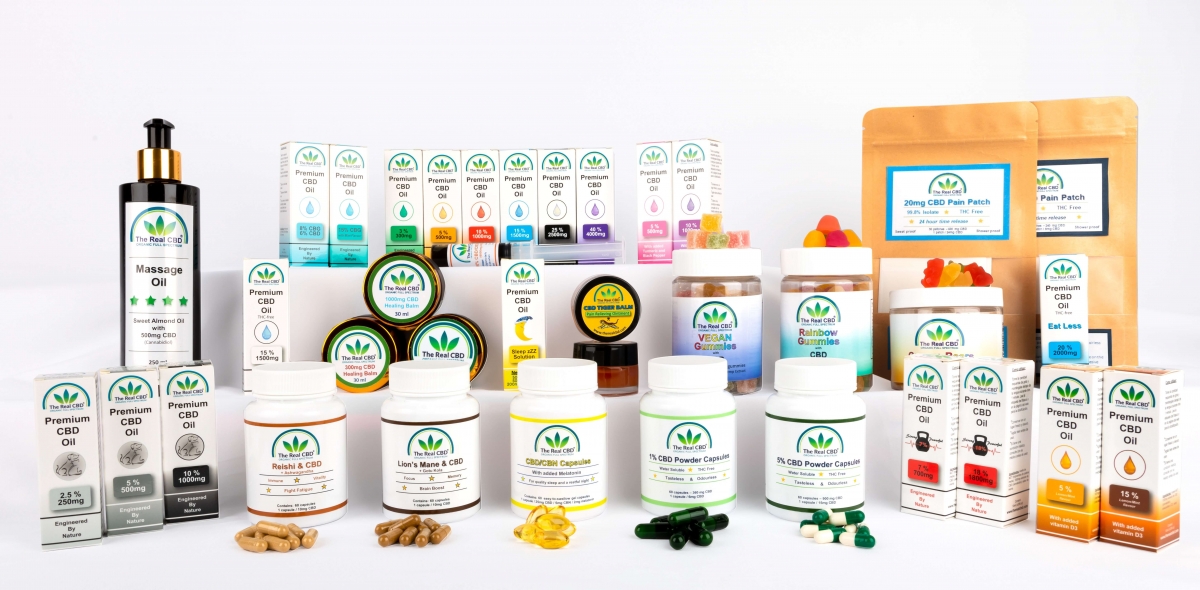
Different CBD Products for Self-Harm
CBD is available in various formats, each with its own advantages and considerations:
- CBD Oil/Tinctures: CBD oils are versatile and commonly used. They are taken sublingually (under the tongue) for fast absorption. They provide precise dosing and can be easily incorporated into daily routines.
- CBD Edibles: Edibles, such as gummies or capsules, offer a convenient and discreet way to consume CBD. However, they may have delayed onset and vary in potency.
- CBD Topicals: Topical products, such as creams or balms, are applied directly to the skin. They may help with localized pain or skin conditions, but are less likely to address underlying emotional factors. However, they are excellent in treating scars and blemishes coming from cutting.
More about CBD
Identifying Warning Signs of Self-harm
While you may not engage in self-harm, it is essential to recognize signs in loved ones who do. Detecting these warning signs allows for intervention and the introduction of healthier coping mechanisms. Being a caring friend may make a significant difference in their lives, as you encourage them to seek professional help from experts skilled in addressing self-harm tendencies.
Inappropriate Clothing Choices

When it's hot outside, someone might wear long sleeves and jeans on purpose to hide scars or new cuts. Fishnet clothes can be fashionable and make you feel strong. It can also hide self-inflicted wounds without making them hurt. It's important to remember that not everyone who wears these clothes hurts themselves, just like not everyone who wears loose clothes hurts themselves. But you should pay attention to these signs.
Low Self-Esteem
People with low self-esteem often do things that hurt themselves, but not everyone who has low self-esteem does these things. It is important to find out if people have the skills they need to handle their feelings well.
Not Being Able to Handle Feelings
People who have trouble controlling their emotions may have temper tantrums, bouts of uncontrolled crying, or feelings of overwhelming happiness. During their worst times, they may hurt themselves as a way to cope.
Avoidance
People who cut themselves off from friends and family or avoid relationships may be dealing with feelings they can't control, low self-esteem, or are trying to hide injuries they caused themselves. Even though not all shy people hurt themselves, it is a good idea to check on them often and tell them of the love and support they have.
Bad results at school, work, or at home
Some people may hurt themselves as a way to deal with problems with taking care of their responsibilities and keeping good relationships. It's important to think about these things when giving help.
How CBD Can Provide Help

Self-harm often serves as an unhealthy coping mechanism for people overwhelmed by intense emotions. CBD has the potential to alleviate these emotions, reducing their severity and facilitating the adoption of healthier coping mechanisms.
Depression and CBD
Depression is a debilitating mental disease that is often caused by brain damage caused by stress. It shows up as a constant shadow that fills a person's life with feelings of hopelessness, guilt, shame, and sadness. Recent studies show that CBD may be a fast-acting antidepressant that does more than just make people feel better. Research suggests that CBD may raise the amounts of some chemicals in the brain that are usually lower in depressed people. Also, it may increase the production of brain-derived neurotrophic factor (BDNF), which is a chemical that brain cells need to grow and stay alive.
CBD Can Help with Anxiety and Anger
Anxiety and anger are similar in that they both come from a feeling of being attacked, confused, or trapped, which sets off the fear reaction in the limbic system. CBD has the ability to reduce activity in the amygdala and help the hippocampus get back to normal functioning. Both of these brain areas are linked to anxiety.
Trying out different ways to deal with stress

Now that we know CBD can help us deal with strong feelings, it's easy to find and use other ways to do so. Nevertheless, you should know that not every way to deal with worry will work for you. If you know why someone hurts themselves, you can help them find better ways to deal with their troubles.
Distracting Coping Mechanisms
People who want to get away from overwhelming feelings or a chaotic life can find comfort by doing things like playing video games, reading, listening to music, cooking, or taking care of themselves, like taking a shower. For example, singing loudly in the shower is a good way to take care of yourself and enjoy music at the same time.
Coping Mechanisms to Release Tension
People can get rid of their stress by doing things like ripping up old magazines, screaming into a pillow, or hitting a pillow hard with a baseball bat in their own garden. Exercise, breaking old dishes, smashing a watermelon, or any other action that raises your heart rate without hurting you or anyone else. This can be used as a way to deal with stress.
Coping Mechanisms to Induce Sensation
Taking a quick cold shower can make you feel your heart beating and tell you that you are alive. It can also help with depression. On the other hand, you can also feel things by biting into a hot pepper and drinking a glass of water or milk at the same time.
Methods of Coping for Expression
People who are having trouble on the inside often have the ability to use their pain in creative ways. One can make sculptures that show emotional breakdowns, draw people drowning in a sea of fears, or write songs that make people feel strong emotions. Sharing these works with other people can show how much understanding and care they have.
Various ways to deal with the need to punish oneself
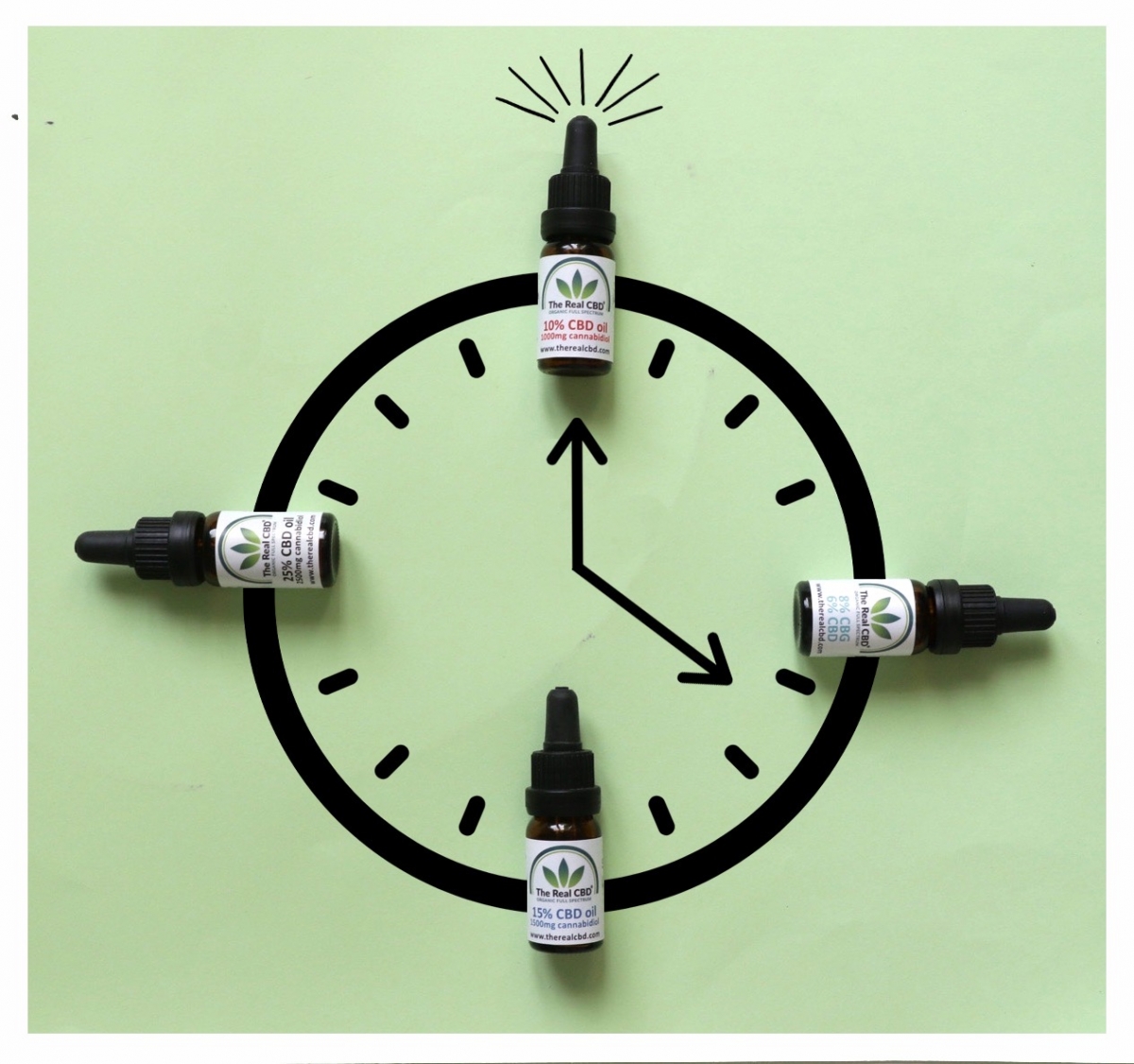
Talking about how you feel might seem like a pointless idea at first, but it can be helpful. Find people who can help you focus on your feelings and let them out in healthy ways, even if that means shouting. They can be a voice of reason and take some of the pressure off your shoulders. Doing an online praise spree to make other people's days better and boost their sense of self-worth can also help fight against negative thoughts about yourself. Finding one's skills, starting with basic manners and moving on to all the great things that make up a person's character, helps with healing and self-acceptance.
How to Cope to Get to Happiness
When you exercise, you release Endorphins. This is similar to what happens when you hurt yourself, but with better health benefits, higher self-esteem, and effects that last longer. In addition, exercise does not leave any scars. For people who do not like lifting weights, things like dancing, yoga, or going for walks barefoot can help them feel good.
Trying to Get Help
Even though it may be hard to talk about self-harm because of social shame or dismissive attitudes, trying to solve the problem on your own will only make things worse. Contacting a therapist who specialises in helping people deal with their emotions in better ways can help people learn how to deal with their problems and stop hurting themselves.
Best Practices for Using CBD for Self-Harm
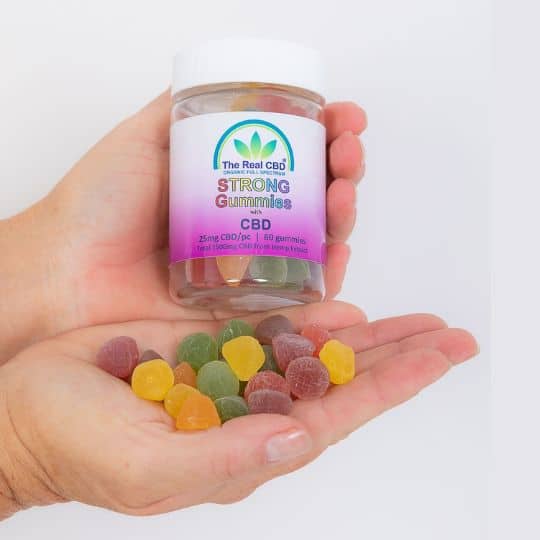
To ensure a positive experience with CBD for self-harm, consider the following best practices:
- Start Low and Go Slow: Begin with a low CBD dosage and gradually increase if necessary. Monitor your response and adjust accordingly.
- Consistency is Key: Consistency is vital for achieving optimal results with CBD. Stick to a regular dosing schedule and give your body time to adjust.
- Keep a Journal: Maintain a journal to track your CBD usage, dosage, and any changes in self-harm behaviors or related symptoms. This can help identify patterns and inform adjustments in your CBD routine.
- Seek Professional Support: Use CBD in conjunction with professional mental health support. Work closely with your therapist or healthcare provider to ensure a comprehensive and coordinated approach to self-harm management.
Benefits of CBD for Self-Harm
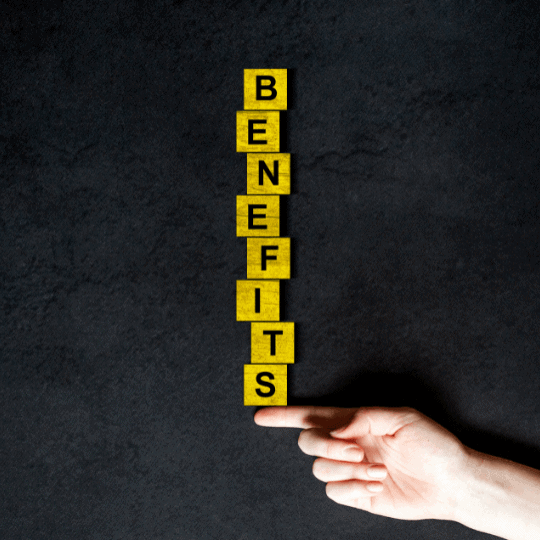
While individual responses may vary, CBD may offer potential benefits when used as part of a comprehensive self-harm management strategy. Some potential benefits include:
- Reduced Anxiety and Stress: CBD's interaction with the ECS may help promote relaxation and reduce anxiety and stress levels, potentially contributing to decreased self-harm tendencies.
- Improved Mood Regulation: CBD's potential impact on mood regulation and serotonin receptors may assist in stabilizing emotions, providing a sense of calm and emotional balance.
- Enhanced Sleep Quality: CBD can improve sleep quality, which can positively influence overall well-being and potentially reduce self-harm triggers related to fatigue or sleep disturbances.
Safety Precautions and Side Effects
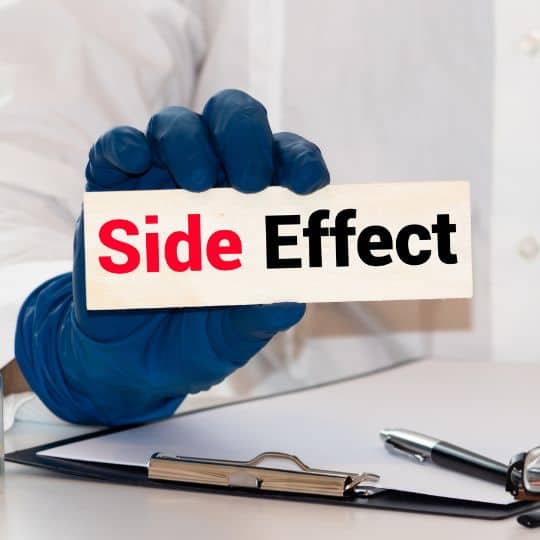
While CBD is generally well tolerated, it is essential to be aware of potential side effects and safety precautions:
- Side Effects: CBD may cause mild side effects such as dry mouth, fatigue, or changes in appetite. These effects are typically temporary and subside with time.
- Drug Interactions: CBD has the potential to interact with certain medications. It's important to consult with a healthcare professional to ensure there are no contraindications with your current medication regimen.
- Quality and Source: Choose CBD products from reputable sources that provide third-party lab testing to verify potency, purity, and absence of contaminants.
FAQs about Using CBD for Self-Harm
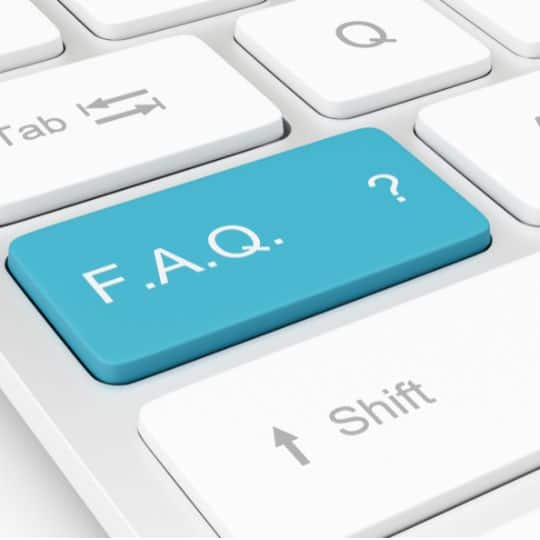
CBD should be viewed as a complementary tool rather than a cure-all. It may help manage underlying conditions and reduce self-harm tendencies, but a comprehensive treatment approach is essential.
CBD should not replace therapy or professional mental health support. It can be used as a complementary tool to support a comprehensive treatment plan.
CBD's onset of effects can vary depending on the individual, dosage, and method of administration. Some individuals may experience immediate effects, while others may require consistent use over time
CBD is generally well tolerated, and it is considered difficult to overdose on CBD alone. However, it's essential to follow dosing guidelines and consult with a healthcare professional for personalized advice.
CBD has the potential to interact with certain medications. It is crucial to consult with your healthcare provider to ensure there are no contraindications or adverse interactions.
Conclusion
Using CBD to hurt yourself needs careful thought, responsible use, and a well-rounded mental health care plan. CBD may have some benefits, but do not use it instead of therapy or professional help. If you or someone you know is struggling with self-harming behaviours, it is important to get help from professionals in mental health. They can show you the best ways to deal with self-harm and improve your general health.

I am a certified expert in Medicinal Cannabis. We are all about giving correct and trustworthy information. We know how important it is to learn about CBD and cannabis, which is why we want to be your go-to source for trustworthy information. We help you improve your health by using our knowledge and experience as a starting point.

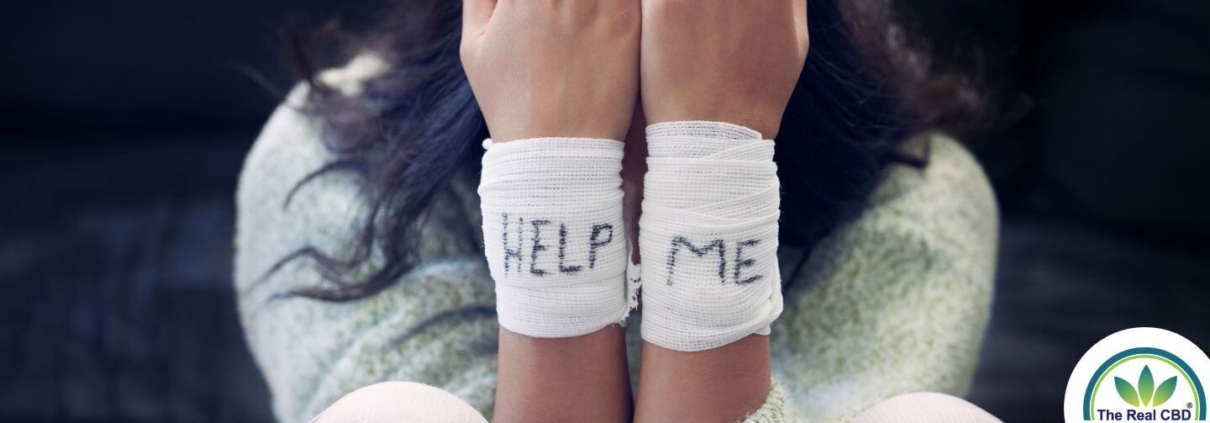
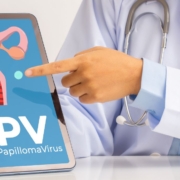
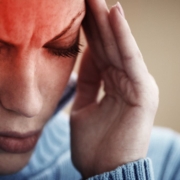


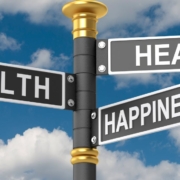
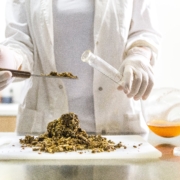
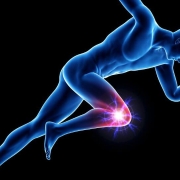





Leave a Reply
Want to join the discussion?Feel free to contribute!